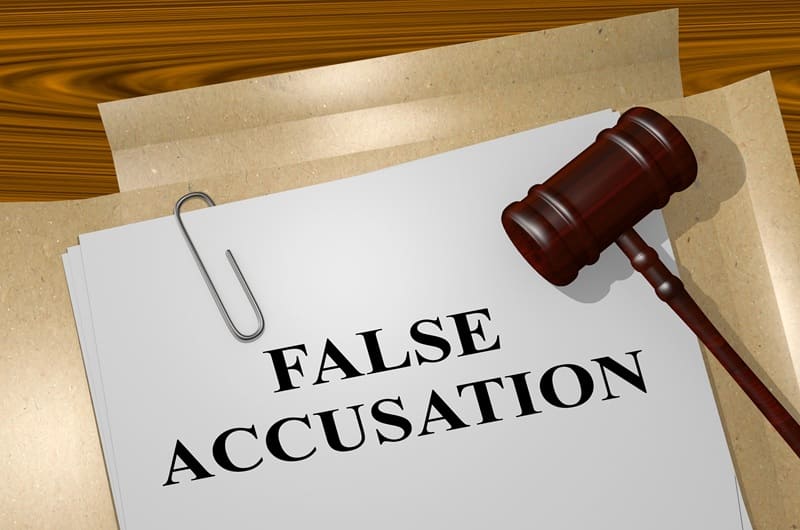Assault In Arlington VA Laws & Key Definitions
Assault In Arlington VA Laws & Key Definitions
Imagine finding yourself embroiled in a situation where you’re facing charges. Assault in Arlington VA demands a strong understanding of the state’s laws. Knowledge of how these work can make a world of difference for anyone encountering such charges.
This guide covers essential definitions, legal classifications, and an overview of assault charges. It’s a helpful resource for anyone charged, accused, or seeking understanding.
An Overview Of Virginia Assault Laws
In Virginia, assault and battery are often mentioned together, yet each has distinct legal meanings. Assault refers to an attempt or threat to cause harm to another person without actually touching them. Battery, however, involves intentional physical contact that causes harm or is offensive.
For example, if someone raises their fist threateningly but doesn’t strike, it’s considered assault, but if they throw a punch and make contact, that constitutes battery. The state of Virginia treats both assault and battery as serious offenses, reflecting their commitment to maintaining public safety.
Legal consequences for these actions can be severe, highlighting the importance of understanding and adhering to the law. Assault charges can result in significant penalties, including jail time and fines, even if no physical harm occurred.
Assault and battery charges are generally categorized as misdemeanors. It carries penalties of up to 12 months in jail and fines up to $2,500. However, involving law enforcement or domestic partners can result in felony charges with harsher penalties.
Virginia law also takes the intent behind the action into account. Reckless or accidental behavior typically doesn’t qualify as assault under the law. Instead, prosecutors must prove intent or a clear threat of harm. This distinction can make or break a case and highlights why it’s necessary to understand how Virginia defines and penalizes assault.
Understanding these factors is critical for anyone facing assault charges. It’s vital to consult with an experienced criminal defense attorney to assess the specific circumstances of your case. They can help determine a suitable course of action.
Legal Definitions & Key Terms
Virginia has specific definitions for terms related to assault. Knowing these terms can clear up what might otherwise feel like confusing legal jargon.
- Assault: In Virginia, assault is the intentional act of creating fear of imminent harm in another person. No physical contact is needed, but the threat must be credible and cause fear.
- Battery: Unlike assault, battery involves harmful or offensive touching with another person. The contact can be direct or indirect. For example, if you throw a stone at someone, it’s considered battery. It can be charged alone or alongside assault, depending on the nature of the incident.
- Aggravated Assault: This type of assault involves severe intent to cause significant harm or death. It often includes the use of weapons and is a felony offense with severe penalties.
- Simple Assault: Simple assault is the basic form of assault without the intent to cause serious harm. It’s generally a misdemeanor but can still carry jail time and fines.
- Malicious Wounding: This is a violent act done with malicious intent, meaning there was a deliberate plan to harm someone. Malicious wounding is a serious offense and is typically charged as a felony.
- Unlawful Wounding: This charge is similar to malicious wounding but without the element of malice or premeditated intent. It involves reckless behavior that causes harm but was not planned or done with malice.
Virginia’s specific definitions for these terms allow the courts to tailor penalties based on the severity and circumstances of each offense. Understanding these definitions is helpful for anyone preparing for the next steps in an assault case.
Classifications Of Assault In Arlington, VA
Virginia classifies assault into several categories based on the severity of the incident, intent, and the victim’s status. Each classification has its legal consequences and affects how the court approaches sentencing.
Simple Assault
Simple assault is the least severe form of assault and generally involves minor threats or contact without an intention to cause major harm. This offense is a Class 1 misdemeanor and can lead to a jail sentence of up to 12 months and a fine of $2,500. Simple assault cases often stem from misunderstandings or minor altercations. These incidents don’t involve serious injury, making simple assault one of the most common charges.
Aggravated Assault
Aggravated assault involves more serious harm or the use of a deadly weapon, which raises the offense’s severity. It’s usually charged as a felony and carries more substantial penalties, including longer prison terms and higher fines. The intent to cause significant harm or death often defines this classification, and it applies to situations where extreme violence was used or intended.
Domestic Assault
Assault against a household member or family member, such as a spouse or partner, is classified as domestic assault. Virginia’s courts take domestic assault seriously due to its impact on family safety and stability. Convictions may lead to jail time, protective orders, and, in some cases, felony charges, especially if the accused has a history of prior domestic violence incidents. Additionally, those convicted could face restrictions on child custody and visitation rights.
Assault On Law Enforcement Officers
Virginia law protects public safety officials, including police officers and firefighters, with special provisions. Assaulting a law enforcement officer is treated as a felony and carries a mandatory minimum sentence of six months in jail. The law aims to deter attacks on those responsible for public safety, and courts often impose strict sentences for these offenses.
Each classification carries unique challenges for the accused and affects the legal approach. Understanding them can greatly affect how defendants and their lawyers approach the case. Arlington criminal assault lawyers can analyze your case and provide a well-prepared defense strategy.
Legal Process For Assault Charges
The legal process for assault charges in Virginia is typically straightforward but varies based on the case’s specifics. The first step is the arrest, where the accused is taken into custody and formally charged. If enough evidence suggests probable cause, the case will proceed to arraignment.
During arraignment, the accused enters a plea, and the judge may set bail or decide if the defendant should remain in custody. Next, both sides enter the pre-trial stage. Here, the criminal defense lawyer may file motions to challenge evidence or request dismissal of charges if there is insufficient evidence. The pre-trial period allows both the defense and prosecution to gather information, interview witnesses, and set the stage for trial.
If the case goes to trial, each side presents its arguments, evidence, and witnesses. The judge or jury will then determine whether the defendant is guilty beyond a reasonable doubt. If found guilty, sentencing occurs, where the judge considers several factors before deciding the punishment.
Throughout the process, defendants have rights guaranteed by the Constitution. They have the right to a defense attorney, the right to remain silent, and the right to confront witnesses. This structure of rights ensures that every person accused has the opportunity for a fair trial and a robust defense.
Defense Strategies Against Assault
Several defenses are commonly used in Virginia to challenge assault charges. Understanding these options can be key to a successful outcome for those facing such accusations. An Arlington criminal lawyer can protect your interests and craft a suitable defense.
Self-Defense
Self-defense is common. Individuals can protect themselves if they face an immediate threat. This defense requires demonstrating a genuine belief in danger and a proportional response to that threat. For example, retaliating against an attacker may qualify as self-defense if the reaction is reasonable.
Defense Of Others
Defense of others is another approach. Like self-defense, it allows individuals to protect a third party in imminent danger. Virginia law acknowledges that people may use reasonable force to protect others if they believe that person is in immediate harm. The use of force must still be measured against the threat level.
Lack Of Intent
A lack of intent defense is also relevant in many cases. Assault requires intentional action, so if the accused acted accidentally, they may be able to argue that there was no intent to harm or threaten anyone. For example, if someone bumps into another person unintentionally, it would not qualify as assault due to the absence of intent.
False Accusations
False accusations are a significant issue in assault cases. Misunderstandings, revenge, or heated emotions can lead to charges that don’t accurately reflect what happened. In these cases, gathering evidence such as witness testimony, video footage, or other documentation can help to disprove the allegations.
Each of these defenses can play a crucial role in challenging assault charges. They offer ways to highlight the facts and demonstrate why a “not guilty” verdict or dismissal may be warranted. A strategic defense plan considering these options can make a real difference in court.
Benefits Of A Criminal Defense Lawyer
An assault and battery lawyer has a critical role in assault charges. Their first step is typically assessing the case, examining evidence, and identifying any weaknesses in the prosecution’s case. This initial analysis often reveals options that may not be immediately obvious to someone without legal training.
An Arlington criminal lawyer can also negotiate with the prosecution. Sometimes, they may secure a reduced sentence, plea bargain, or even dismissal. Skilled lawyers know when to push for favorable terms and when to take a case to trial.
During the trial, the defense lawyer cross-examines witnesses, challenges evidence, and presents arguments highlighting flaws in the prosecution’s story. They aim to introduce reasonable doubt, which can lead to a “not guilty” verdict or a lighter sentence.
For those facing assault charges, having experienced Arlington criminal assault lawyers can mean a stronger defense, peace of mind, and potentially better outcomes. They handle the details, build the case, and provide a buffer against the stress of facing serious charges.
The Irving Law Firm Defends You
The Irving Law Firm approaches assault cases with a commitment to thorough preparation and client-centered service. We start by learning the unique aspects of each client’s situation, from gathering relevant evidence to assessing possible defenses. This individualized approach is designed for clients to receive the specific support they need.
We offer various services, including representing clients during arraignment, managing the discovery process, and handling all pre-trial motions. Our team knows how important it is to leave no stone unturned. We work diligently to present a solid case, challenging the prosecution’s evidence and using any weaknesses to the client’s advantage.
What sets us apart is our client-centered approach. We know that each case is personal and that the stakes are high for our clients. Through attentive communication and careful planning, we ensure clients understand each step. For anyone facing assault charges in Virginia, we provide solid representation and guidance to move forward confidently.
Virginia’s assault laws cover a range of offenses, from simple threats to violent actions. It also includes those involving law enforcement or domestic partners. Knowing the classifications, legal definitions, and potential defenses can be a powerful asset for anyone facing these charges. A defense lawyer has a critical role in protecting the accused.
Facing assault charges can be overwhelming, but understanding the laws and having a strong defense can make all the difference. Those in this situation are encouraged to seek legal representation to navigate the case effectively. A skilled and knowledgeable team like the one at The Irving Law Firm by your side can prioritize your rights and future.






